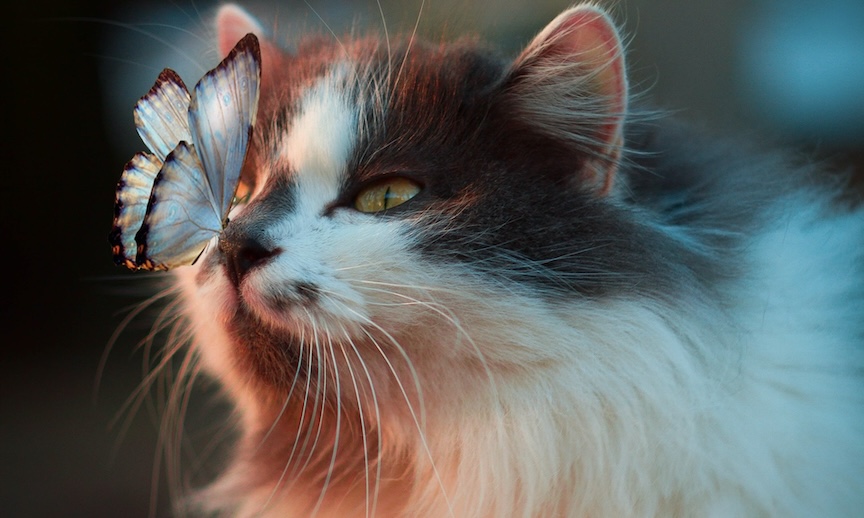POPCORN ON THE PONY FARM
Mom liked to tell this story about my father’s family.
When my paternal grandparents, Raymond and Bertha Groves, decided to move from Wisconsin to upstate New York in the late 1920s, my grandfather consulted an agriculturalist from Cornell University to advise him about what crops to grow on his new farmland. The expert took soil samples, read the water table and flood plain, and studied the microclimate of this specific acreage along the upper Susquehanna River. He determined that the conditions were as close to perfect as they could be for apple orchards. So my grandfather ignored that recommendation and grew popcorn instead.
Mom usually relayed this as an example of Groves willfulness. Running against the wind, flying in the face of perfection. Never mind that common sense suggests that the situation clearly calls for something else. Never mind that the conditions might even be perfect for another course. Groveses gotta Groves. She wasn’t wrong. I never knew my grandad, but my father and his siblings were like that. Dad tended to ask for lots of feedback, soliciting others’ advice. But in the end, even if all opinions pointed to the contrary, he would usually do what he’d planned to do in the first place.
This week, I’ve been thinking about the idea of perfect conditions.
- Do they exist — perfect conditions?
- Are the circumstances in which we currently find ourselves perfect for one specific response, one distinct thing, and our job is to figure out what that is, and do it?
- Or — coming at it from the other direction — are we ourselves perfectly suited for some particular set of conditions, and the trick is to seek out or create those conditions so that we can shine in them?
As if the world and all beings in it are keys and locks. Match the right key with the right lock and everything will open up.
I’ve often thought of it that way. Like it’s a matter of connecting one’s gifts-talents-passions with precisely that which the world is calling for. That’s success, dharma, purpose. Doing what you love and discovering that it’s exactly what was needed. The conditions are perfect. We are perfect for them. It’s match made in heaven.
Except, so often, they’re not. We’re not. It’s not.
Ernest Holmes was big on Perfection, fairly insistent about it. He uses the word 84 times in The Science of Mind, affirming over and over the perfection of the Universe, of Spirit, of Human Being. Apparently imperfect worldly conditions are but temporary illusions, the out-picturing of ignorance, false beliefs, and mistaken consciousness. As we clarify our minds and hearts, aligning ever more surely with Divine Perfection as our Ultimate Reality, the conditions of our lives and the world will comply and conform. Thus we create Heaven on earth.
His point is strongly made. And while there are a lot of variables in play, I do believe that basically this is how the creative process works. Opening our hearts and minds to something is the only way we get to experience it. And if enough of us changed our minds and set our hearts on something new, together, there’d be no stopping us. “Perfect God, Perfect Humanity, Perfect Being.” Voila!
The word “perfect” is a tricky one, though. It gums me up a little. Because everyone knows that perfectionism is a neurosis that leaves one perpetually stressed-out and miserable.
My parents were both perfectionists in their own ways. Mom was an academic overachiever with a deep appreciation for getting things “right.” She fit the definition of a perfectionist as one compelled to take things from point A to point A+. It makes sense to me that she would have total faith in the expert advice of a Cornell agriculturalist who offered the one correct answer: apples. For Mom, if someone chose a different path from the “right” one, then no wonder they encountered hardships. Dad’s perfectionism was more of the suffering artist type — striving, ever striving towards an ideal, a paragon, the exquisite glimmer of something always and forever just ahead.
I inherited some of both, I think. Probably most of us have some of both. In which perfection is upheld as something to which we aspire, to which we want to get. One day we’ll arrive, god willing, if we apply ourselves with vision and right-thinking, with practice and effort. All our experiences of imperfection right now are simply evidence that we aren’t quite there yet. Either because — as Ernest Holmes said — “Man is potentially perfect, but free-will and self-choice cause him to appear imperfect.” Or because — as my parents would have it — we just haven’t worked hard enough.
Maybe there’s another approach, though. One that doesn’t dismiss difficulties and hardships, “imperfections,” as either illusions born of ignorance, or as evidence of one’s shortcomings. Maybe perfection isn’t, in fact, someplace to get, nor something to achieve. But rather something to embrace in the world and in ourselves, exactly as it is and exactly as we are. What if all these seeming imperfections are, really, perfect?
I mean, for sure, some of it really sucks. I’m not dismissing that. Also, I’m not discounting or even attempting to make sense of other people’s suffering. I’m just trying to reckon with my own. And as far as my own suffering goes — maybe the suckiness of it is the perfect thing to call forth some fresh innovation, some new creativity. Maybe all the problems I’m experiencing aren’t the result of my bad choices or bad luck, or an unjust world with lots of shitty people in it. Maybe my problems are perfect. My mistakes, my regrets, my doubts and fears, my frailties, my failures — all perfect.
If perfect is where we come from, rather than someplace we’re struggling to get to, then we’re already there, here, no matter how messed-up it is. In that case, this case, we’re truly at choice. We don’t have to make up for something, prove ourselves, pay our dues, or earn our right to be in our lives. We can just choose. Right now — in this perfectly imperfect world, in our perfectly imperfect lives, with our broken hearts and open minds — we choose.
Co-founder of Axios and author of Just the Good Stuff, Jim VandeHei, writes: “[To shine] you simply need to want to construct goodness with whatever life throws at you.”
If whatever life throws at us is part of the perfection… And our own impulses, passions, hopes and fears as we face it are part of the perfection… And whatever outcomes we experience, desired or different, are also part of the perfection… Then I think we are closer to what Ernest Holmes was really getting at. Perfect not as an aspirational state of being, but as a process and a practice of acceptance, gratitude, and unfolding opportunities for creativity, connection, and love.
My grandparents’ popcorn farm was called “The Pony Farm.” They bought it from someone who raised ponies on the property, for carnivals and circuses. The farm is long gone, but the road is still named “Pony Farm Road.” The conditions might have been prime for ponies, or for apples, but what they got were Groveses who wanted to grow popcorn. Perfect.
Our lives may seem to call for this or that. The world appears to be missing this or have too much of that. It seems like conditions are ripe for something else, or we’d be ideal for different conditions. But what we’ve got is ourselves and each other and this. Perfect.
I can’t wait to be with you this Sunday, June 9, 10am, with special musical guest, Daphne Mitchell. Our new Sunday location is q-Staff Theatre at 400 Broadway Blvd SE. That’s on the southeast corner of Broadway and Lead in East Downtown. There’s plenty of parking up and down Broadway, with several spaces reserved right in front of the theater. If you don’t mind a little stroll and want to leave those rockstar spots for folks who really need them, you can also find lots of free street parking just east on Arno. XO, Drew
©2024 Drew Groves




